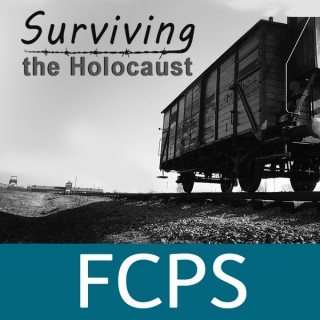
Slavery in the Colonial Period
Follow Slavery in the Colonial PeriodThis collection is from a series of programs produced in conjunction with George Washington's Mount Vernon Estate, with funding from the Donald W. Reynolds Foundation. In addition to examining the lives of slaves in the colonial period, the collection takes a look at the ironies inherent in the dev…
Fairfax Network, Fairfax County Public Schools
- Jul 2, 2015 LATEST EPISODE
- infrequent NEW EPISODES
- 7m AVG DURATION
- 12 EPISODES
More podcasts from Fairfax Network, Fairfax County Public Schools
Latest episodes from Slavery in the Colonial Period

Historical interpreters take us back to 1792 and discuss what the new constitution will mean to them. Billy Lee, who served as General Washington’s manservant throughout the Revolutionary War; Caroline Branham and Oney Judd, who worked under Mrs. Washington’s supervision in the mansion; Christopher Sheels, the General’s manservant in Washington’s later years; and Bob Hemings, manservant to Thomas Jefferson, join host Kate Sullivan for a discussion on our Nation’s founding period from the point of view of the enslaved community.

A look at how George Washington's view of the institution of slavery changed over time.

An overview of the number and distribution of the slave community at the colonial Mount Vernon estate.

A look at the living conditions and routines of slaves during the Colonial period.

Historians and historical interpreters discuss the complex and important relationship between George Washington and slave Billy Lee.

Historical interpreters imagine the context in which colonial slaves would have discussed their freedom.

Historical interpreters imagine how slaves would have heard about, discussed, and interpreted the creation of the Constitution.

An interpretation of the complex relationship between Thomas Jefferson and slave Bob Hemings.

Looks at the various levels of status within the colonial enslaved community and discusses how slaves related to one another.

Looks at how the founders of the United States left room for interpretation in the founding documents that would eventually lead to the abolition of slavery.

Discusses the state of the nation and the viewpoints on slavery during the development of the Constitution.

Explains how the Constitution did and did not recognize the enslaved community.

















